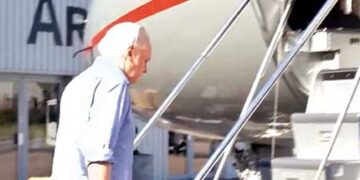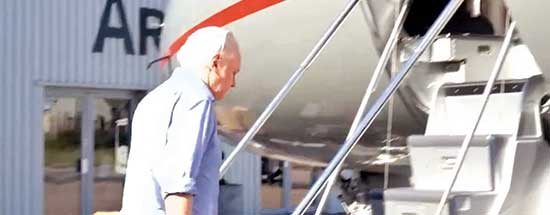Team Blitz India
WikiLeaks founder Julian Assange was released from a British prison and was making his way back to his home country Australia on June 24 after his 12- year battle against extradition to the United States ended in a plea deal, according to CNN.
Five years in prison
The controversial figure has spent the past five years in a high-security UK prison and nearly seven years before that holed up at the Ecuadorian embassy in London, trying to avoid arrest that could have led to life imprisonment.
Assange, 52, agreed to plead guilty to a felony charge related to his alleged role in one of the largest US government breaches of classified materials after his whistleblowing website published nearly half a million secret military documents relating to the US wars in Iraq and Afghanistan. The plea deal caps a long-running legal saga, allowing Assange to avoid prison in the US and return to Australia as a free man – but not until he has made a court appearance in a remote US territory in the Pacific.
Under the terms of the agreement, US Justice Department prosecutors will seek a 62-month sentence – which is equal to the amount of time Assange served in the United Kingdom while he fought extradition. The plea deal would credit that time served, allowing Assange to immediately return to Australia. The deal must still be approved by a federal judge.
Because Assange was resistant to setting foot in the continental US to enter his guilty plea, a judge will conduct the hearing and sentencing together on June 25 in Saipan, in the Northern Mariana Islands, according to a letter filed by prosecutors. The Pacific island chain is a US territory some 6,000 kilometers (3,700 miles) west of Hawaii and a US federal district court is based in the capital Saipan. The islands are also closer to Australia, where Assange is a citizen and is expected to return to after the court hearing, prosecutors said.
‘Politically motivated case’
Assange had long argued the case against him was politically motivated, that he would not face a fair trial, and his handover would violate the European Convention on Human Rights. Free speech advocates condemned the extradition attempt, saying it would have a chilling effect on press freedom.
















